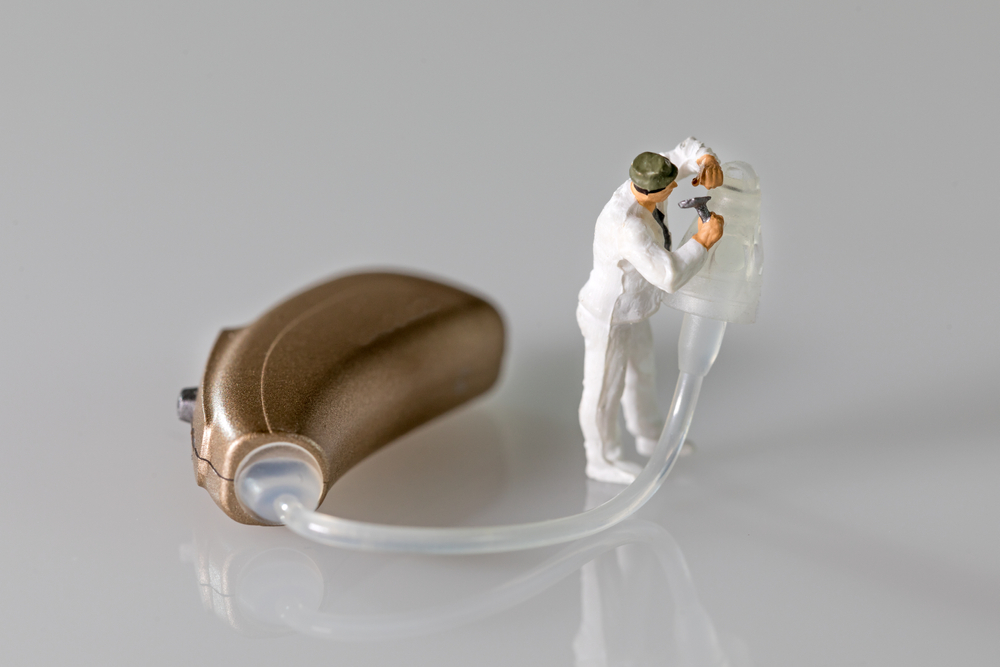Hearing aids are reliable and can serve you for years but aren’t destruction-free. Over time, you can expect some functionality issues. To continue using them, you must consult your audiologist for repair.
Some hearing aid repairs can be easy as cleaning and unclogging the device, while others can be complicated. It is important to know when your hearing aid requires repair and when to take them to your audiologist. At Memorial Hearing, we do our best to fix any issue with hearing aids to help you go about your business normally.
4 Common Hearing Aid Repairs
You’ve realized your hearing aids’ importance—they help you follow conversations with your friends without straining. But what happens when they break? It can be very annoying and demoralizing; worse, it makes you feel lost in communication. Unfortunately, you can’t entirely prevent your hearing aids from issues. The best way to maintain their functionality is to repair them when they break. Common hearing aid repairs include:
- Damaged microphone: when the sound coming from your hearing aids has changed, it is more common for the microphone to be damaged. When this happens, the volume could decrease or increase. It can be frustrating when the device fails, and you want to follow an important conversation. However, before concluding it is an issue with the microphone, you need to confirm that it is not an issue with your hearing.
- Hearing aids hook damage: this is the part of a hearing aid that keeps the device in position. Its position protruding from the device makes it more susceptible to twisting. While this is a simple issue you can probably fix on your own, it is important to take it to your audiologist to avoid more damage.
- Clogged connector tube: the tubing connects your hearing aids to the earmold and transmits sound from behind-the-ear (BTE) hearing aids to the ear canal. The connector tubing may clog over time, hindering efficient sound transmission to the ear. A clogged connector tube is a substantial issue requiring your audiologist to repair it.
- Damaged battery: this is the most common issue with hearing aids. Fortunately, it’s a very simple problem to fix. When you use your hearing aids every day, it is possible to forget when to change the battery before it is damaged.
Preventing the Need for Repairs
It’s impossible to prevent the need for hearing aid repairs at all. Once in a while, you’ll have to repair the devices. Fortunately, simple hearing aid maintenance can delay the period between repairs.
- Keep your hearing aids clean. When you wear your hearing aids for an extended period, you may notice wax accumulating on the device. This is perfectly normal, but leaving the wax for a long time can inhibit your hearing or damage the device. Cleaning your device regularly can help maintain hearing aids in the best working condition.
- Keep hearing aids dry. While certain types of hearing aids are waterproof, most can be damaged by moisture. If you have the waterproof type, you may not have to worry much about getting them wet. However, most hearing aids in the market are vulnerable to water. If you can keep yours dry always, you delay the need for repair or replacement.
- Store them in a secure place. When you keep your hearing aids anywhere in your house, you increase the risk of damage. They are small and delicate, and when left on the ground, you can step on them. Storing them in a case in a safe spot is a good practice for damage prevention.
Safe and Professional Hearing Aid Repair in Houston
Although you don’t have to worry about needing hearing aid repairs consistently, it is crucial to know where to go in case they fail to work effectively. There are many audiologists in Houston, but not all can provide the service you deserve.
At Memorial Hearing, we are meticulous when fixing hearing aids. We are committed to providing quality hearing aid repairs to help you do your daily chores without hassle. When your hearing aids require manufacturer repairs, we can give you loaner hearing aids before yours are fixed and working properly.
Contact us and schedule an appointment.
Image Credit: Canetti on Shutterstock

